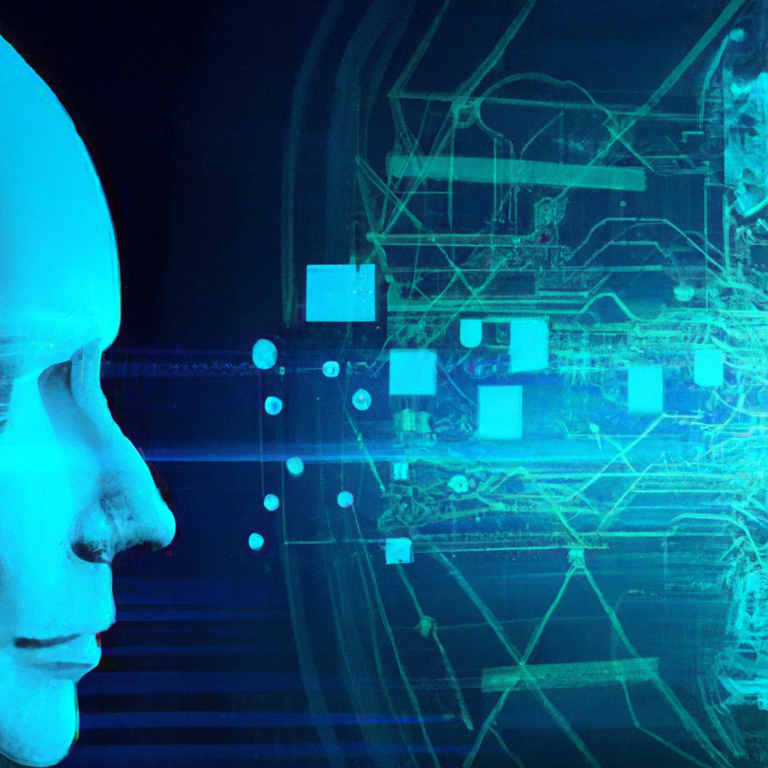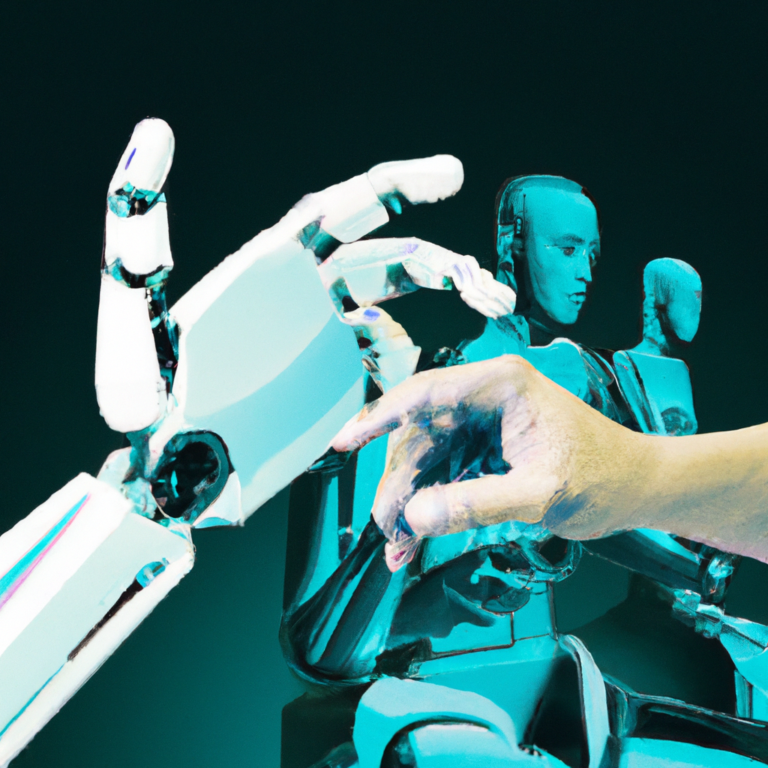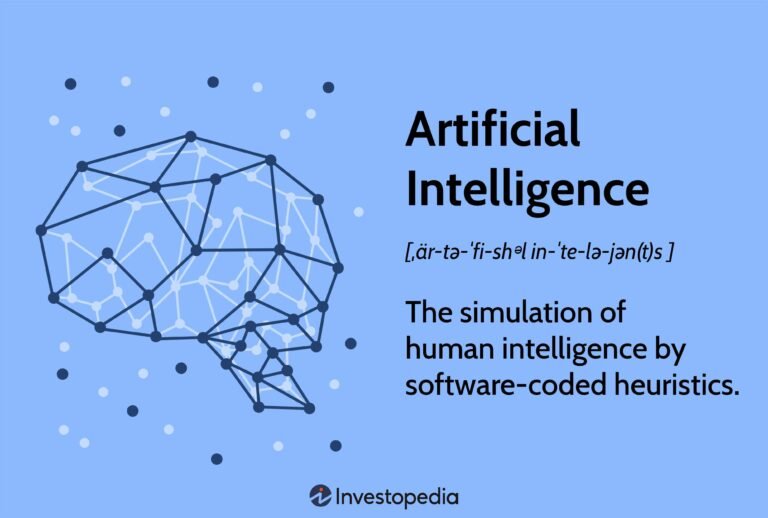How To Prepare For A Career In AI: What Skills And Knowledge Do You Need To Succeed In A Career In AI?
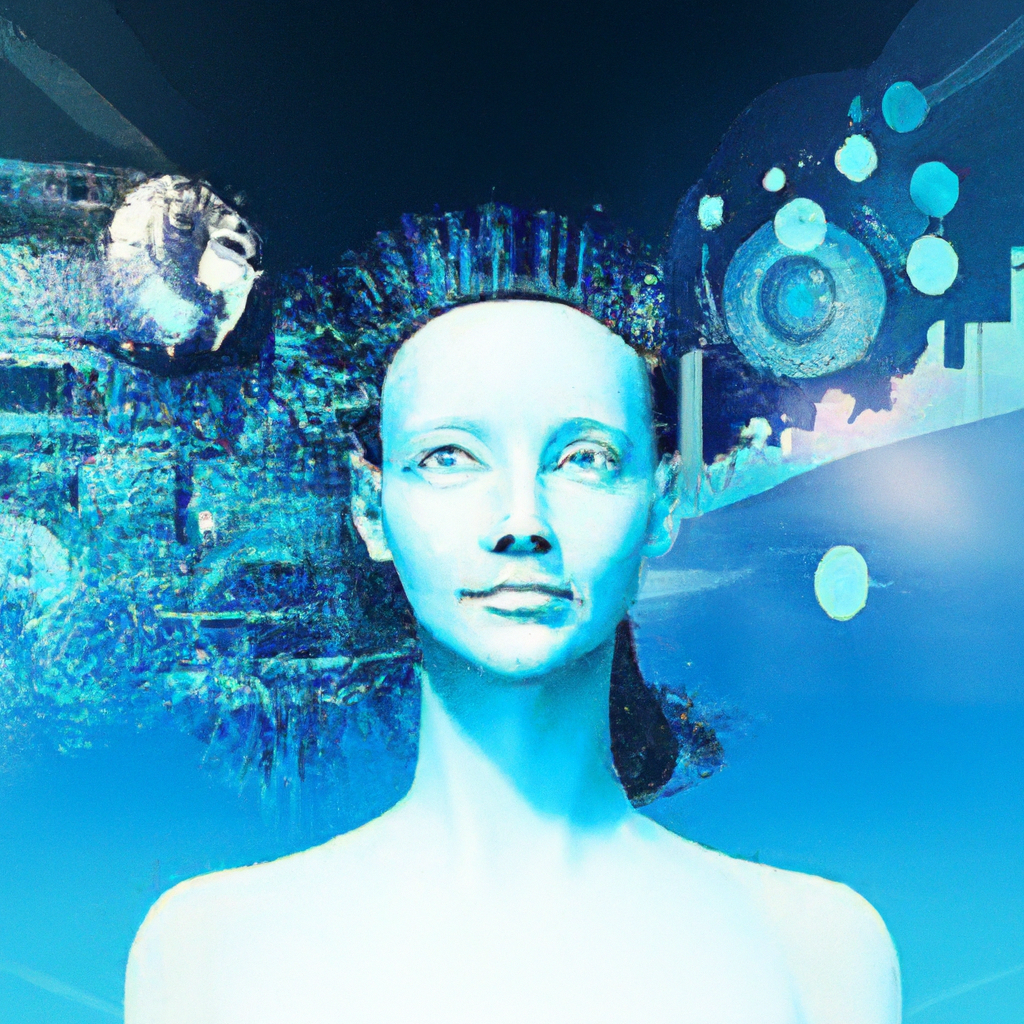
So you’ve heard about the exciting world of artificial intelligence (AI) and are eager to embark on a career in this rapidly evolving field. But before you can dive into the world of AI, it’s important to understand the skills and knowledge you’ll need to succeed. In this article, we’ll explore the essential skills and knowledge required to prepare for a career in AI, giving you a comprehensive guide on how to thrive in this exciting industry. From programming languages to mathematical prowess, get ready to discover what it takes to excel in the field of AI.

Exploring the Field of AI
Artificial Intelligence, or AI, is a rapidly growing field that has the potential to revolutionize various industries and impact our daily lives in significant ways. As technology advances, so does the demand for professionals skilled in AI. If you’re considering a career in AI, it’s essential to understand the role of AI in different industries and the potential career paths available to you.
Understanding the Role of AI in Different Industries
AI has applications in various industries, including healthcare, finance, transportation, manufacturing, and more. In healthcare, AI can be used to analyze medical data and assist in diagnoses. It can also be utilized to develop personalized treatment plans for patients. In finance, AI algorithms can help with fraud detection, stock market analysis, and risk assessment. Transportation can benefit from AI-driven autonomous vehicles and route optimization. Manufacturing can improve efficiency and productivity through AI-powered automation. The list goes on, but the common thread is that AI can enhance decision-making, automate processes, and enable more advanced analysis in almost any industry.
To prepare for a career in AI, it’s crucial to gain a strong foundational knowledge and develop the necessary skills.
Researching AI Career Paths
Before diving into AI, it’s helpful to research and understand the different career paths within the field. AI offers a wide range of opportunities, including roles such as AI researcher, data scientist, machine learning engineer, AI consultant, AI software developer, and more. Each career path may require a specific set of skills and knowledge. By exploring these paths, you can identify which area aligns with your interests and start building the relevant skills to pursue that path.
Foundational Knowledge and Skills
To excel in the field of AI, it’s important to have a solid understanding of mathematics, statistics, programming, and computer science basics.
Mathematics and Statistics
Mathematics is the language of AI. A strong foundation in calculus, linear algebra, probability, and statistics is essential. These mathematical concepts underpin various AI algorithms and models. Understanding them will enable you to make informed decisions while designing and training AI systems.
Programming and Computer Science Basics
Proficiency in programming languages like Python, Java, or C++ is crucial. These languages are widely used in AI development and have extensive libraries and frameworks to support AI applications. Additionally, having a solid grasp of computer science fundamentals, such as data structures, algorithms, and computer architecture, will provide you with a strong base to tackle complex AI problems.
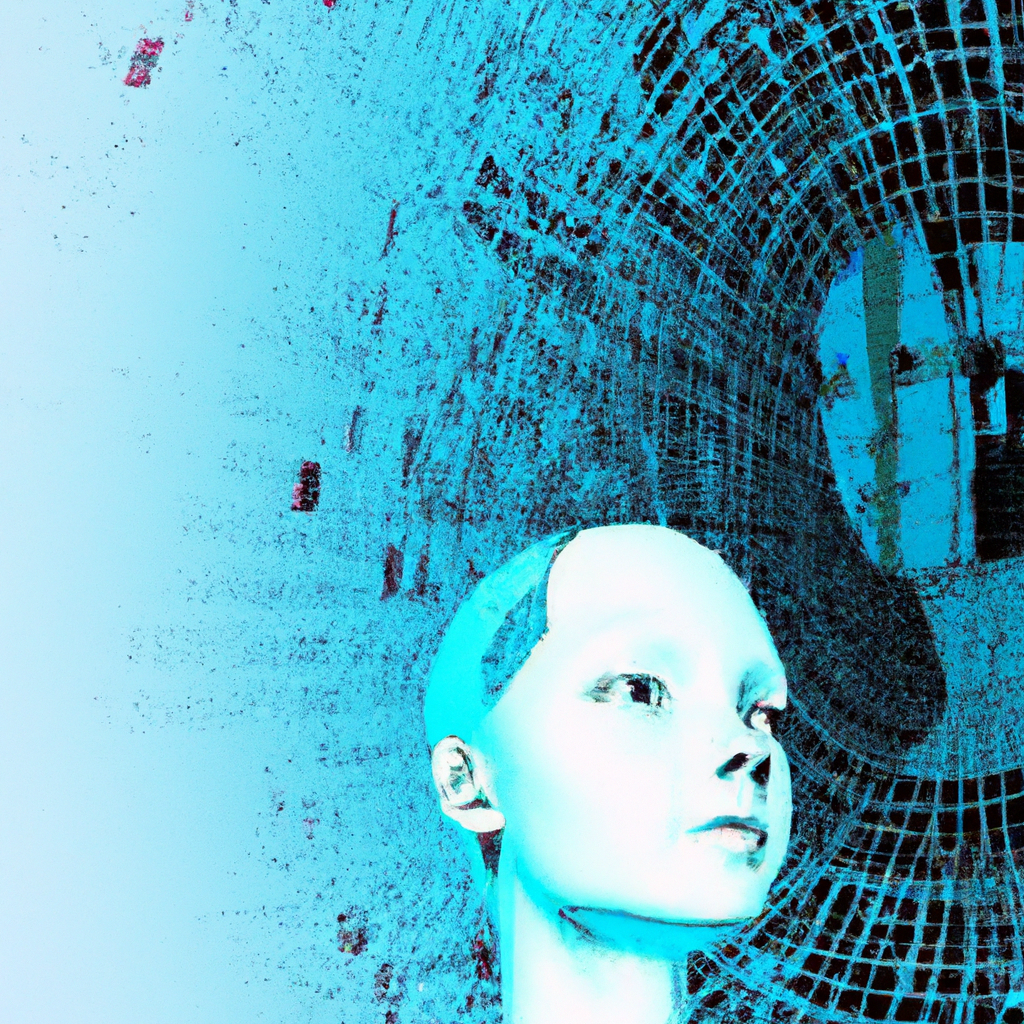
Machine Learning and Data Science
Machine Learning (ML) is a subfield of AI that focuses on algorithms and models that can learn from data and make predictions or decisions. Data Science, on the other hand, involves extracting insights and knowledge from large datasets. Understanding these concepts and techniques is vital for a career in AI.
Understanding Machine Learning
Machine Learning revolves around training models to recognize patterns and make accurate predictions. Supervised learning, unsupervised learning, and reinforcement learning are common approaches within ML. Familiarize yourself with these techniques and their applications, as they form the backbone of many AI systems.
Data Exploration and Analysis
Data Exploration involves understanding the characteristics, quality, and distribution of datasets. Being able to identify outliers, missing values, and potential biases is crucial in preparing data for AI models. Additionally, data analysis techniques like clustering, dimensionality reduction, and feature engineering play a vital role in uncovering hidden patterns and improving model performance.
Data Visualization
Communicating insights effectively is essential in AI. Data visualization techniques help to present complex information in a visually appealing and understandable format. Proficiency in using visualization libraries and tools like Matplotlib, Tableau, or D3.js can make a significant difference in conveying outcomes and findings.
AI Algorithms and Frameworks
Once you have a solid foundation in machine learning and data science, it’s time to dive into the specific AI algorithms and frameworks commonly used in the industry.
Deep Learning
Deep Learning is a subset of ML that focuses on training artificial neural networks with multiple layers to learn and make predictions. Neural networks have gained a lot of popularity due to their ability to tackle complex problems such as image recognition, natural language processing, and speech recognition. Understanding and implementing deep learning architectures, such as Convolutional Neural Networks (CNNs) or Recurrent Neural Networks (RNNs), is crucial for many AI applications.
Natural Language Processing
Natural Language Processing (NLP) enables computers to understand and analyze human language. NLP techniques are used in chatbots, sentiment analysis, language translation, and many more applications. Familiarize yourself with NLP libraries like NLTK, spaCy, or Transformers to gain a deeper understanding of this subfield of AI.
Computer Vision
Computer Vision is a field of AI that focuses on enabling computers to understand and interpret visual information from images and videos. It has applications in areas such as object detection, facial recognition, autonomous vehicles, and medical imaging. Gaining experience with computer vision algorithms and libraries, such as OpenCV or TensorFlow, can open doors to exciting career opportunities.
Data Acquisition and Preparation
Data is the fuel that powers AI systems, and acquiring and preparing this data is a crucial step in the AI development process.
Data Collection and Cleaning
Data can be obtained from various sources, including public datasets, APIs, or proprietary company data. Depending on the application, it’s essential to collect a diverse and representative dataset that reflects the problem at hand. Additionally, data cleaning involves removing noise, handling missing values, and addressing potential biases to ensure the quality and reliability of the dataset.
Data Preprocessing
AI models often require input data to be transformed and preprocessed before training. This may include scaling features, handling categorical variables, or normalizing data. Understanding different preprocessing techniques and when to apply them is essential to ensure the best performance and accuracy of AI models.
Model Development and Deployment
Developing and deploying AI models is the final stage of the AI development process.
Model Selection and Evaluation
Choosing the appropriate model architecture and algorithm for a given problem is crucial. Evaluating and comparing different models helps identify the one that performs best on the given data. It’s important to keep in mind factors such as model complexity, interpretability, and computational requirements while making these decisions.
Model Training and Testing
Model training involves feeding the prepared data to the chosen algorithm and adjusting the model’s parameters to optimize its performance. Testing the trained model with unseen data helps assess its performance and generalizability. Techniques like cross-validation and hyperparameter tuning play a role in fine-tuning the model.
Model Deployment
Deploying an AI model involves integrating it into a real-world system or application. This step requires ensuring the model’s stability, efficiency, and scalability. Collaborating with software developers and understanding deployment frameworks like TensorFlow Serving or Docker can facilitate a smooth integration process.
Ethics and Bias in AI
With the increasing influence of AI in our lives, understanding and addressing ethical concerns and biases is crucial for responsible AI development.
Understanding Ethical Concerns in AI
Ethical concerns in AI revolve around issues like privacy, transparency, fairness, and accountability. As an AI professional, it’s important to be aware of the potential implications of AI systems and work towards developing solutions that align with ethical standards.
Mitigating Bias in AI Systems
Bias can unintentionally be introduced into AI systems through biased training data or biased algorithms. It’s important to carefully evaluate and address biases that may perpetuate discrimination or exclusion. Techniques such as bias correction, diverse dataset collection, and algorithmic fairness can help minimize biases in AI systems.
Continuous Learning and Professional Development
The field of AI is dynamic and constantly evolving. To stay ahead, it’s essential to stay up-to-date with the latest advancements and actively engage in continuous learning.
Staying Up-to-Date with the Latest AI Advancements
Read research papers, follow AI-focused blogs or podcasts, and stay informed about the latest breakthroughs in the field. Subscribing to newsletters or joining online communities can help you keep up with the rapid developments in AI.
Participating in AI Competitions and Challenges
Competing in AI competitions or challenges is a great way to test your skills, learn from others, and showcase your abilities. Platforms like Kaggle or AI Hackathons provide opportunities to work on real-world problems and collaborate with like-minded individuals.
Building a Strong AI Portfolio
A strong portfolio is essential to showcase your skills and demonstrate your ability to apply AI concepts to real-world problems.
Developing Personal AI Projects
Undertake personal AI projects to apply your skills and showcase your creativity. Building projects that address practical problems or explore new areas of AI can make your portfolio stand out. Document your process, insights, and outcomes to demonstrate your expertise to potential employers or collaborators.
Contributing to Open-Source AI Projects
Contributing to open-source AI projects allows you to collaborate with the wider AI community and gain recognition for your work. It also provides an opportunity to learn from experienced AI practitioners and contribute to projects that have real-world impact.
Networking and Building Industry Connections
Networking and building connections within the AI community can open doors to new opportunities and collaborations.
Attending AI Conferences and Meetups
Attend conferences, workshops, or meetups focused on AI to connect with experts and fellow professionals. These events provide opportunities to learn from industry leaders, gain insights into the latest trends, and forge connections with like-minded individuals.
Joining AI Professional Organizations
Joining AI professional organizations allows you to network with professionals in the field, access resources, and stay updated on industry developments. Organizations such as AAAI, IEEE, or ACM offer memberships and provide valuable networking opportunities for AI enthusiasts.
By following this comprehensive roadmap, you can develop the necessary skills, knowledge, and connections to succeed in a rewarding career in AI. Stay curious, keep learning, and embrace the endless possibilities that AI offers. Good luck on your journey!
Want to write articles like us? Get your copy of AI WiseMind here!



